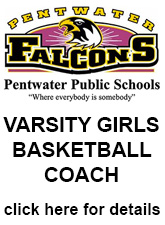C-Notes, a blog by George C. Wilson.
A milestone passed today. Not much fanfare accompanied it. The last print issue of Time magazine crossed my desk in the library. It’s not the last Time magazine print edition ever. No… not quite. But there is no doubt that milestone is on the horizon. It is only the end of the Time magazine subscription run for the Rockford High School library. It is a victim of changing formats and dwindling relevance.
I grew up loving print. Four newspapers reached my childhood home every day. I learned to read by scanning them after my father was done with them. I also remember reading Time Magazine and National Geographic at home after my dad was done with those as well. My library career started in the era of print dominance a quarter of a century ago. I have purchased magazines and newspapers for decades as a librarian only to watch as readership plummeted. Twenty years ago I read three or four newspapers a day. I can’t tell you the last time I purchased a newspaper. I visit Google News and Mlive two dozen times a day to get my news fix (along with Mason County Press too, of course). The simple fact is subscription based paper news outlets are teetering on extinction. Fewer people than ever read them.
This world is built on immediacy. Paying to read news that could have been gleaned from Internet sources hours if not days and weeks before it reached print makes no sense. So other than some donated subscriptions the library does not carry print magazines. It has been four years since the library subscribed to a daily newspaper. It is how things must run in an era with dwindling budgets. The money we do have we have to invest in digital resources. Those resources come from online databases mostly – and that is where you will find articles from Time and People and Newsweek, Sports Illustrated, National Geographic and etc.
Before you mourn that print is dying consider this – those popular magazine titles you grew up with on your coffee table as a child are augmented by hundreds if not thousands of other resources in a good database. So in effect for a little more than what magazine subscriptions used to cost the library we receive far more information resources than ever before. It is a golden age of quality news and information delivered to the student researcher in an easily accessed format. A format that includes a stunning array of research assists for the student. Citations are provided in multiple academic styles. Embedded dictionaries and digital voice readers are standard. Abstracts are readily available as are links to thousands of related items through well referenced search terms.
Seven years ago when I took over this library there was a vertical file containing tens of thousands of clippings and pamphlets- representing untold man hours of clipping and weeding. I threw it all out except for a few items of local interest. Twentieth century libraries needed vertical files. The Internet supplanted vertical files years ago. Seven years ago there was a side room in the library with over 10,000 back issues of the magazines the library subscribed to. Along with that were bound volumes of a very expensive 20th century research necessity known as The Reader’s Guide to Periodical Literature. Zip – the magazines went to the recycle bin and the yearly subscription to the Reader’s Guide was canceled. Although it took two years of explaining in emails that we no longer wanted to subscribe to the Reader’s Guide, the copies kept coming and so did the bills. I sent the copies back and returned the bills. I guess the publishers couldn’t conceive of losing such a profitable account so they hung on to the grim end. The bold print warnings on the Time magazine shipping sleeves the last few months reminded me of the difficulty in making the Reader’s Guide publisher accept that it was no longer needed. TIME is running out! Renew immediately to lock in savings! Yada Yada Yada!
So by this point you might be asking “If print is dead why do we need librarians?” Well if you care to think it through you will realize that librarians are more necessary now than ever. A librarian is trained in information access and retrieval. They are trained to provide information literacy training to the patrons of the library. With more information available now than ever before managing it is exponentially more difficult. I use this simple anecdote with my students. “When I was a student researcher finding a single piece of useful information was like finding a needle in a haystack. It was time consuming and if I found something it took time and effort to retrieve it for use. Now a student researcher must find a needle in a mountain of needles. Which is more difficult? Yes you have immediate retrieval but how do you know that what you are retrieving is vetted and valid?” It’s simple really – you need an information professional like a degreed librarian to take you through that herculean task. And along the way they will impart in you the skills needed to repeat the process effectively on your own.
Print may be dying but reading is not. We still buy traditional books for the library but almost all new purchases are works of fiction with a few high interest nonfiction titles thrown in. Again digital resources available for relative low prices have replaced the giant reference books you knew as a youngster. Those large and wonderful books on a myriad of subjects once took up hundreds of feet of shelf space in libraries but they too are going the way of the dodo. The great liability of reference books is that once printed they are static -trapped in print never to be revised. Information is just too voluminous and too ever changing in this era to be effectively contained in even a multi volume set. It has been ten years since I bought a set of encyclopedias or an almanac for a library. I loved them but I can no longer justify the expense when high quality online databases provide better service to my students and staff.
As I was working on this column I took a call from the Follett Inc. representative for the state. Follett provides our library management software and we buy most of our print materials through them. I set up a meeting with the rep to go over new ebook options for the library. We have some ebooks available to patrons but in the future they will be at least the equal of what we purchase in print. Demand will drive the switch over. You may love print. But you are reading this essay on a screen and unless one of you is crazy enough to print it that is how it will stay. Never to see print. And as a librarian who was raised loving everything about the printed word I’m OK with that. It’s the ideas that matter – not the format.



















.jpg)
























 (1).gif)











.png)







